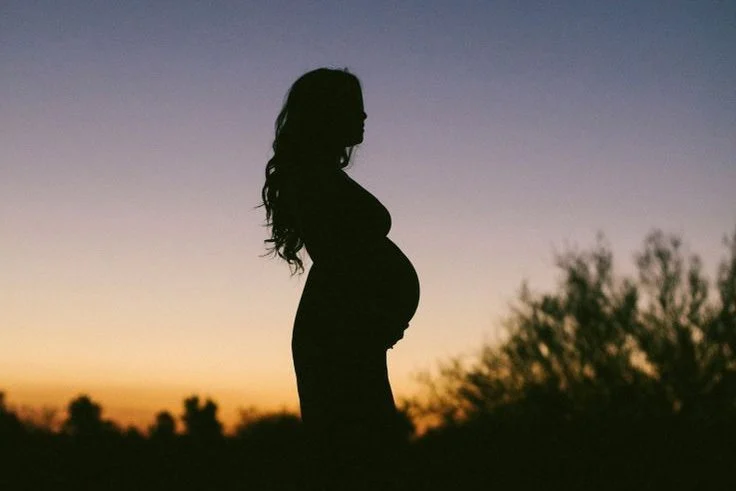Having a child transformed my very essence—down to my core. I still remember being in a haze of pain medication when someone asked me, “But your daughter was worth it, right?” Lying in my hospital bed, I couldn’t help but question that very notion.
During my second trimester, a sudden, sharp pain in my groin struck while I was out for a jog, leaving me doubled over in agony. My doctor brushed it off casually, saying, “Pelvic and hip discomfort is just part of being pregnant.” It was clear that “suck it up” was the underlying message.
As the pain worsened, I progressed from crutches to a walker and eventually to a wheelchair. While I was thrilled to welcome my daughter, a larger part of me simply wanted her to be born so I could reclaim my body. Showering became a challenge, and my husband had to help me navigate even the simplest tasks. The pain was unbearable, and I longed for the relief of a few over-the-counter painkillers.
After giving birth, a series of X-rays and an MRI revealed that the pain I’d felt while jogging was not just a minor issue; it was the first sign of transient osteoporosis, a rare pregnancy-related condition where bones lose significant calcium. The tests confirmed I had multiple stress fractures in my hip and pelvis, likely exacerbated by labor. At just 29, my body faced irreversible damage.
I had anticipated sacrificing certain pleasures during pregnancy: late-night outings, snug-fitting jeans, and a full night’s sleep. I even accepted that I’d take a break from running while my daughter grew inside me. “You’ll be back at it soon,” my running friends reassured me.
However, during a follow-up appointment, my doctor’s smile was accompanied by the grim prediction that “the only time you’ll ever run again is if someone is chasing you down a dark alley.” His words echoed in my mind as I left the office on crutches, haunted by the running bibs that decorated my walls.
Four months of rehabilitation and physical therapy later, I finally walked without crutches, able to carry my daughter or push her stroller. I watched my husband effortlessly pick her up, take her for walks, and soothe her when she cried, feeling a pang of inadequacy. What kind of mother couldn’t care for her own child?
I pleaded with my orthopedic surgeon for a glimmer of hope: “What about just three miles, every now and then, years from now?” His response was blunt—running would lead to severe arthritis, and a hip replacement would be inevitable.
When I confided in a former running buddy, she looked at me with sympathy and asked, “She’s worth it, though, right?” In those early postpartum weeks, I struggled to answer. I would mumble “Of course!” but, deep down, I felt conflicted. I adored my daughter, yet I yearned for my unbroken body and the freedom I once had.
I fought to suppress the bitterness that sometimes crept in. Night after night, I kissed my daughter goodnight and rocked her to sleep in a bassinet beside my bed. Lying on my fractured hip, I held back tears as each gentle sway reminded me of my brokenness.
Over time, I felt guilty for even harboring such thoughts. I had a healthy baby—so why couldn’t my love for her overshadow my pain? As weeks went by, I signed up for a local new moms’ class, eager to connect with others who understood my sacrifices. In that supportive environment, I could express my feelings without the need to justify them with, “I love my child, but…”
Gradually, my body began to heal. I made new friends through the mothers’ group who understood that while my daughter was undoubtedly worth any sacrifice, my physical struggles were also valid. Parenthood is often said to be an experience that no one can prepare for. Having my daughter broke parts of my body and spirit, but I’m now in the process of piecing myself back together.
I often ponder how I will one day explain my journey to my daughter. What will I say if she asks why I don’t run anymore? How can I spare her from feeling guilty about the impact of her birth on my body? If she ever decides to have children, I hope her experience is different. Yet I want her to know that motherhood changes you in unexpected ways. There will be losses, but ultimately, you emerge stronger and more resilient—ready for the sacrifices that come with parenting, knowing that they will be, without a doubt, worth it.
For more insights on parenting, check out this blog post here. If you’re considering home insemination options, you can find reputable kits at Make A Mom. For additional resources on pregnancy and home insemination, visit CDC.
In summary, my journey into motherhood has been filled with challenges and sacrifices, but it has also led to personal growth and resilience. While the physical toll is undeniable, the love for my child is immeasurable and has shaped me into a stronger person.

Leave a Reply